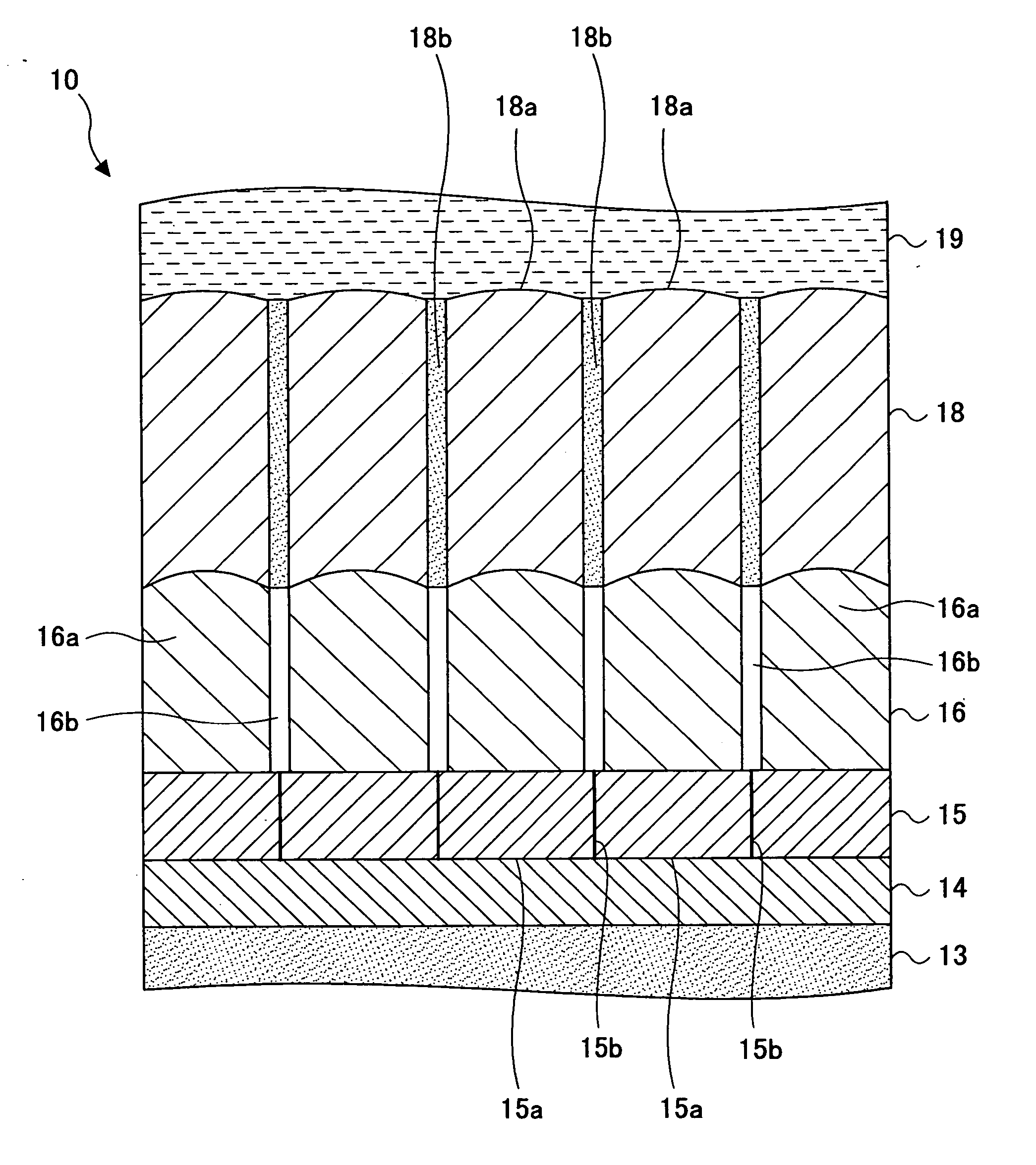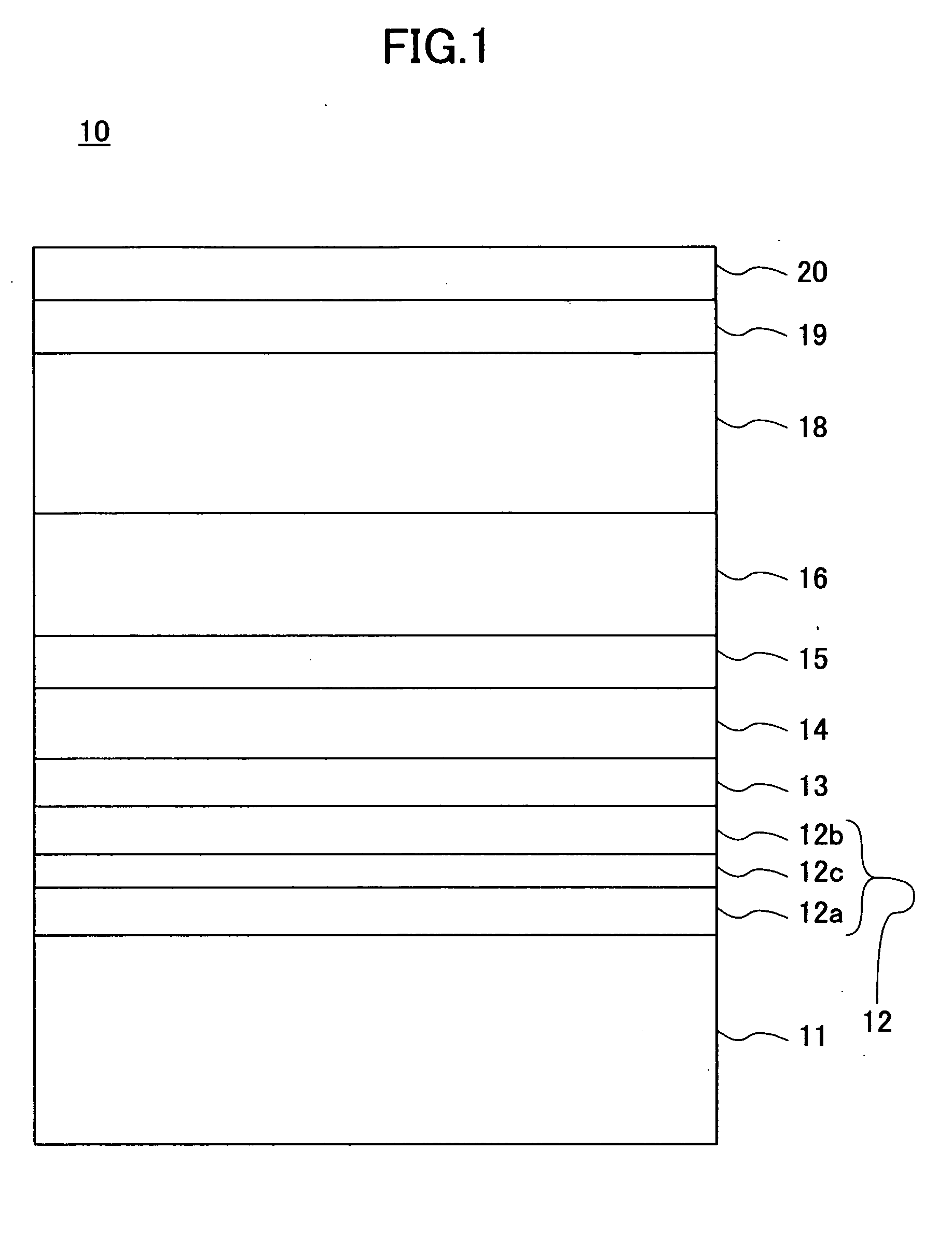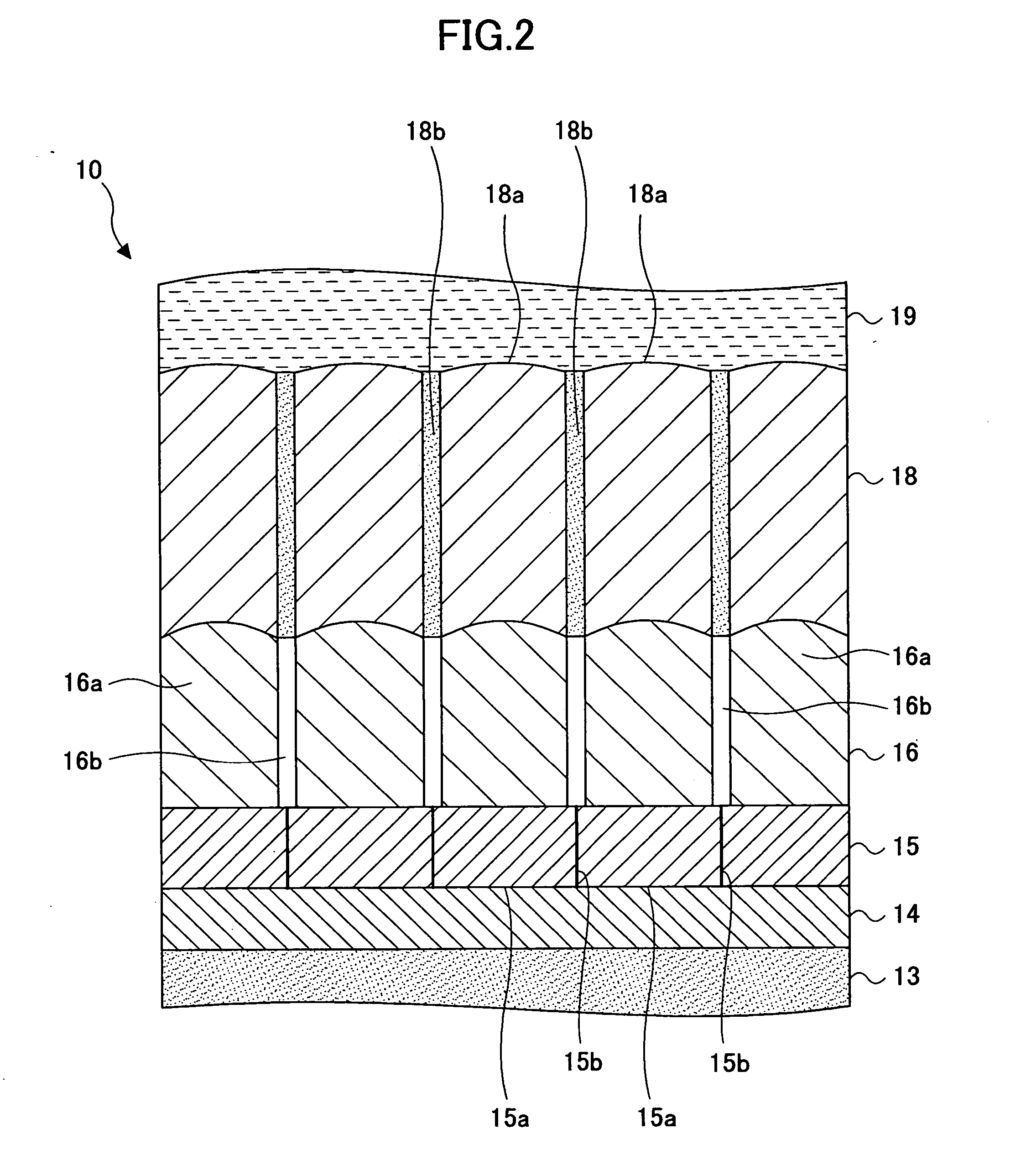Perpendicular magnetic recording medium, method of manufacturing the same, and magnetic storage unit
- Summary
- Abstract
- Description
- Claims
- Application Information
AI Technical Summary
Benefits of technology
Problems solved by technology
Method used
Image
Examples
first embodiment
[0028]FIG. 1 is a schematic cross-sectional view of a perpendicular magnetic recording medium 10 according to a first embodiment of the present invention. FIG. 2 is a schematic enlarged view of part of the perpendicular magnetic recording medium 10 shown in FIG. 1.
[0029] Referring to FIGS. 1 and 2, the perpendicular magnetic recording medium 10 according to the first embodiment includes a substrate 11, a layered soft magnetic underlayer body 12, a seed layer 13, an oxidation prevention layer 14, a first underlayer 15, a second underlayer 16, a recording layer 18, a protection film 19, and a lubricating layer 20. The layered soft magnetic underlayer body 12, the seed layer 13, the oxidation prevention layer 14, the first underlayer 15, the second underlayer 16, the recording layer 18, the protection film 19, and the lubricating layer 20 are stacked in this order on the substrate 11.
[0030] The substrate 11 is, for example, a plastic substrate, a crystallized glass substrate, a tough...
example 1
[0067] A perpendicular magnetic recording medium according to Example 1 was made with the configuration shown below. The parenthesized values indicate film thickness.
[0068] Glass Substrate
[0069] Soft magnetic underlayer: CoZrNb film (200 nm)
[0070] Seed layer: Ta film (2 nm)
[0071] Oxidation prevention layer: Pt film (3 nm)
[0072] First underlayer: Ru film (15 nm)
[0073] Second underlayer: Ru film (5 nm)
[0074] Recording layer: (CoCrPt15)87—(SiO2)13 film (16 nm)
[0075] Protection film: Carbon film (3 nm)
[0076] Lubricating layer: Perflubropolyether (1.5 nm)
[0077] According to the perpendicular magnetic recording medium of Example 1, after cleaning and drying a glass substrate, a CoZrNb film, a Ta film, and a Pt film having their respective film thicknesses described above were formed in this order on the glass substrate at a pressure of 0.266 Pa (2 mTorr) in an Ar gas atmosphere by DC magnetron sputtering without applying heat to the glass substrate.
[0078] Next, the Ru film of a...
example 2
[0084] Perpendicular magnetic recording media according to Example 2 were made with the configuration shown below. The parenthesized values indicate film thickness.
[0085] Glass Substrate
[0086] Soft magnetic underlayer: CoZrNb film (200 nm)
[0087] Seed layer: Ta film (4.5 nm)
[0088] Oxidation prevention layer: Pt film (3 nm)
[0089] First underlayer: Ru film
[0090] Second underlayer: Ru film (3.7 nm)
[0091] Recording layer: (CoCrPt15)87—(SiO2)13 film (16 nm)
[0092] Protection film: Carbon film (3 nm)
[0093] Lubricating layer: Perfluoropolyether (1.5 nm)
[0094] The perpendicular magnetic recording media of Example 2 were made under substantially the same conditions as those of Example 1. In Example 2, the perpendicular magnetic recording media were made so that their first underlayers were 7 nm, 15 nm, and 22.5 nm, respectively, in film thickness.
PUM
| Property | Measurement | Unit |
|---|---|---|
| Thickness | aaaaa | aaaaa |
| Pressure | aaaaa | aaaaa |
| Pressure | aaaaa | aaaaa |
Abstract
Description
Claims
Application Information
 Login to View More
Login to View More - R&D
- Intellectual Property
- Life Sciences
- Materials
- Tech Scout
- Unparalleled Data Quality
- Higher Quality Content
- 60% Fewer Hallucinations
Browse by: Latest US Patents, China's latest patents, Technical Efficacy Thesaurus, Application Domain, Technology Topic, Popular Technical Reports.
© 2025 PatSnap. All rights reserved.Legal|Privacy policy|Modern Slavery Act Transparency Statement|Sitemap|About US| Contact US: help@patsnap.com



